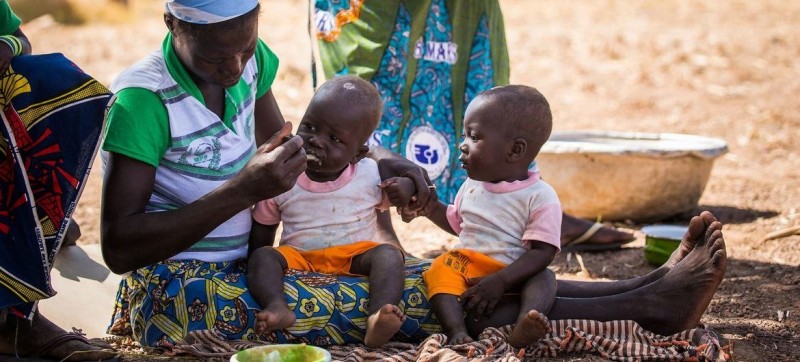Contents
Food insecurity is affecting millions of people in Burkina Faso. Extreme poverty in West Africa rose by nearly three per cent in 2020, another fallout from the COVID-19 pandemic, a UN-backed report launched on Thursday that looks at the socio-impact of the crisis has revealed. The proportion of people living on less than $1.90 a day jumped from 2.3 per cent last year to 2.9 per cent in 2021, while the debt burden of countries increased amid slow economic recovery, shrinking fiscal space and weak resource mobilization.
Report suggests the following #MustDos to ensure effective #BuildForwardBetter in #WestAfrica with @ECA_OFFICIAL, @WFP_WAfrica , @ecowas_cedeao https://t.co/1Kde1TYPQN pic.twitter.com/d5KiWgd2VT
— ECA (@ECA_OFFICIAL) January 20, 2022
More than 25 million across the region are struggling to meet their basic food needs.
Gains annihilated
The study was published by the Economic Community of West African States (ECOWAS), in partnership with the West Africa Sub-Regional Office for the UN Economic Commission for Africa (UNECA) and the World Food Programme (WFP).
Sekou Sangare, the ECOWAS Commissioner for Agriculture, Environment and Water resources, said the pandemic has, in particular, annihilated benefits gained in fighting food insecurity and malnutrition.
“Even if we are happy with the governments’ response through the mitigation actions they have taken, we have to worry about the residual effects of the health and economic crisis as they are likely to continue disturbing our food systems for a long time while compromising populations access to food, due to multiple factors,” he said.
The report highlights the effects of measures aimed at preventing coronavirus spread, such as border closures, movement restrictions and disruption of supply chains.
Forced to sell
These measures had an impact on income-generating activities, and on food prices in markets, with small traders, street vendors and casual workers most affected.
The deteriorating economic situation has adversely affected food security and nutrition in West Africa.
More than 25 million people are unable to meet their basic food needs, a nearly 35 per cent increase compared to 2020. People have been forced to sell their assets and livelihoods in order to get enough to eat.
The situation is most severe in those areas affected by conflict, such as the Lake Chad Basin region, the Sahel, and the Liptako-Gourma region, which borders Burkina Faso, Mali and Niger.
The partners hope the report will encourage public and private response to address the pandemic’s negative impacts on the people of West Africa.
Chris Nikoi, WFP’s Regional Director for West Africa, underscored the need for immediate and concerted action.
“This report clearly shows the urgent need for Governments and partners to deliberately increase investments to strengthen and increase social protection programs, social safety-nets such as school meals, and other livelihoods-enhancing programs with particular emphasis on women and youth,” he said.

Women dig mid-moon dams to save water in Niger.
The Director of the ECA’s Sub-Regional Office, Ngone Diop, pointed to one of the strengths of the partnership, namely the ability to carry out an online survey which mobilized nearly 8,000 respondents.
Moreover, she said “basing our analyses on primary, first-hand data from households directly impacted by the health crisis makes it possible to offer decision-makers at the regional and national levels with relevant and better-targeted policy options.”
Responding to needs
Since the outbreak of the pandemic nearly three years ago, ECOWAS and its partners have implemented several economic and financial measures to respond to the increasing needs in the region.
ECOWAS Member States, with support from WFP and other technical partners, have also expanded social protection programmes, as well as food distributions, for the most vulnerable communities.
For example, In Mali and Niger, they are supporting some 1.4 million people and helping to strengthen national social protection systems.
“WFP is committed to engage more with ECOWAS in enhancing coordination and facilitating experience sharing among countries, with the aim to ensure social protection systems in the region support food security and nutrition and provide resilience to shocks,” said Mr. Nikoi.



